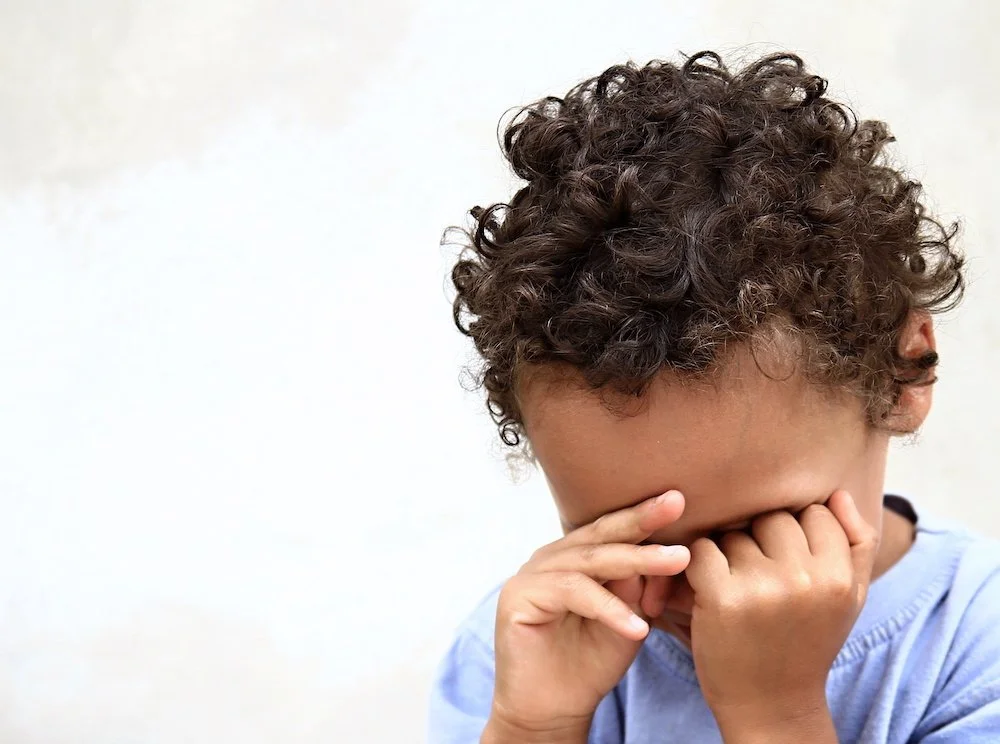How to Calm an Overstimulated Toddler
When your little one gets overstimulated, it can feel overwhelming for everyone involved. From newborn babies to school-age children, understanding how overstimulation occurs is key to helping kids cope with sensory overload.
What Causes Overstimulation in Toddlers?
Brains have a certain capacity to process the world and the stimulation that's in the world. Your child is constantly processing information through eight different senses, not just the five we typically think about. These include:
The five basic senses (sight, sound, touch, taste, smell)
Balance (vestibular sense)
Body position awareness (proprioception)
Internal signals (interoception)
When a child gets overwhelmed by processing all these inputs at once, overstimulation occurs.
Think about a trampoline park - it's basically a sensory nightmare. There's loud music, fluorescent lights, lots of visuals, people jumping up and down, smells from socks and sweat, and lots of movement. Your child's system is being taxed by whatever their body is doing in this environment while also trying to process everything around them.
Signs Your Child is Overstimulated
Children who are overstimulated show their overwhelm in different ways. Depending on the child, overstimulation looks very different. Some children are internalizers, and some are externalizers.
Externalizers might:
Become even more hyper than usual
End up crying in a puddle in the corner
Show physical behaviors like hitting or biting
Scream "I hate you and I hate this place!"
Lash out at siblings or friends
Display irritability
Show signs of physical distress like head banging
Internalizers might:
Get very quiet
Become ornery
Stop talking or making eye contact
Repeatedly say "I want to go home"
Withdraw from activities they usually enjoy
Need space for themselves
Common Activities That Contribute to Overstimulation
Many common activities can help trigger tantrums in children who are overstimulated:
Trampoline parks
Fireworks displays
Beach visits for long periods
Church services
Concerts or loud events
Shopping malls (especially during busy seasons)
Target or grocery store trips
Birthday parties
Swimming lessons
Different activities back-to-back
Even screen time can overstimulate your child in unique ways. If you've got a kid on a screen for two or three hours, you'll see a difference in their behavior. This happens because screens:
Plug into the pleasure centers of the brain with continuous dopamine hits
Create a static visual field in 2D that's highly lit
Lack of natural lighting and 3D real-world interaction
Often involve sitting still without natural movement
Tips and Strategies to Help Calm an Overstimulated Child
When overstimulation occurs, try these approaches to help your child calm:
Create a Calming Environment:
Find a quiet space away from much noise
Reduce bright lights
Move to an area with fewer people
Offer a snack if they're hungry
Create a sense of security through routine
Support Sensory Needs:
Encourage deep breathing if age-appropriate
Use mindfulness techniques with school-age children
Provide deep pressure through gentle hugs (if your child enjoys this)
Try sensory activities that soothe rather than stimulate
Give your overwhelmed child time to process
Prevent Future Episodes:
Maintain consistent sleep schedules
Ensure regular meals
Choose environments that match your child's sensory needs
Watch for signs that your child gets overwhelmed
Plan ways to play that don't overstimulate
Consider the timing and duration of activities
Remember, it's common for young children to become overstimulated, and each child might need different support to cope. Some children feel better with quiet time, while others might need movement to help calm their bodies.
Need help to understand your child's unique sensory needs? Schedule a consultation with Gabriele to develop personalized strategies that work for your family.
Supporting Your Sensitive Child: Creating a Path Forward
Understanding and managing overstimulation is about more than dealing with immediate meltdowns—it's about helping your child learn how to calm down and develop a sense of security in their world. Every child is unique in how they experience the world and process sensory information. What overstimulates one child might energize another, and what soothes one overwhelmed child might further upset another.
Remember these key points when helping your child cope with overstimulation:
Children can get overstimulated even during everyday activities
Your child's reactions are their way of communicating that their system is overwhelmed
It's a good idea to watch for early signs of overstimulation
Your child might need different strategies at different times
Sensory issues are common in young children
How Parent Coaching Can Help
If overstimulation regularly affects your family's daily life, you don't have to figure this out alone. As a developmental specialist and parent coach, I help families:
Identify what overstimulates their child
Create environments that support their child's sensory needs
Develop strategies to help kids cope when they're overwhelmed
Build confidence in handling overwhelming situations
Learn ways to play that don't trigger sensory overload
"I understand the unique challenges that come with parenting a child who easily becomes overstimulated," Gabriele shares. Through parent coaching, you can learn:
How to read your child's early signs of overwhelm
Which activities like swimming lessons or birthday parties might need special planning
Ways to create calming spaces in your home
How to help your child develop their own coping skills
Strategies for different activities and environments
Your child's sensory experiences are unique to them, and finding the proper support can make all the difference in helping them navigate their world comfortably and confidently. Whether you're dealing with daily overwhelm, struggling with transitions, or just wanting to understand your child's needs better, there are effective ways to help you and your child succeed.
Remember, your child's brain is doing its best while getting used to life on this planet. With the right support and understanding, you can help them develop the tools to handle sensory experiences more comfortably.
Gabriele Nicolet is a certified parent coach and developmental specialist who helps families understand and navigate their children's unique sensory needs. Through her personalized coaching programs, she empowers parents to create environments and strategies that support their children's success.
